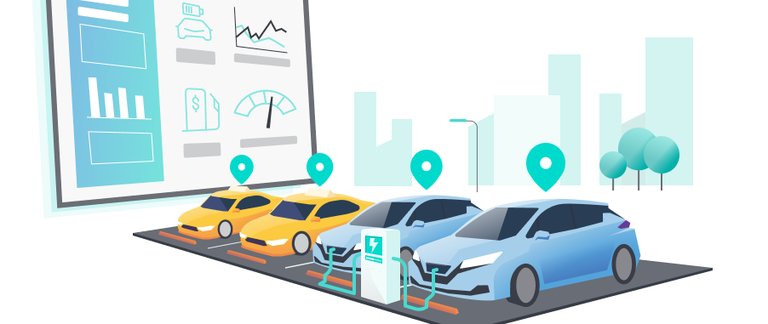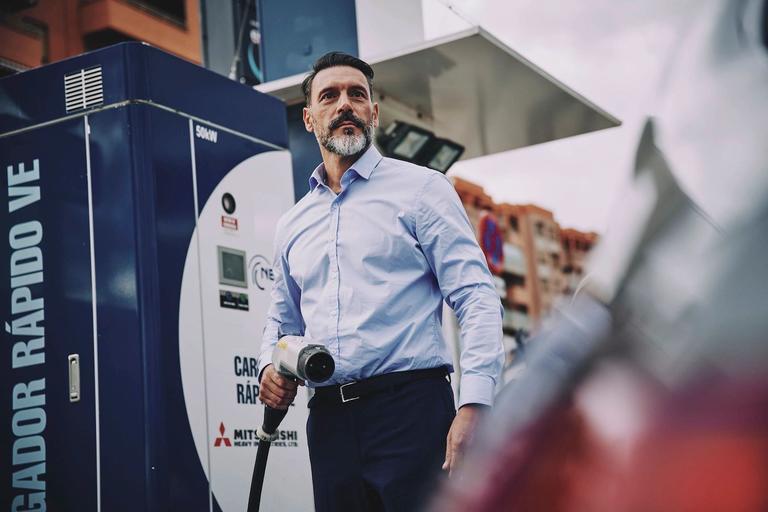EVs that deliver: the fleet you need — and the technology that will make it work

When is the right time to electrify your fleet? The decision depends on cost and having the right technology to support your vehicles.
When the United States Postal Service (USPS) unveiled its huge electric truck at CES this year, it was a watershed moment.
There will be 66,000 of these vehicles on US roads by 2028, a future that once looked uncertain.
Government funding has helped the USPS achieve this goal. Not all fleets have this advantage, of course.
Yet many regions offer support to companies that want to make the switch to electric vehicles (EVs). In a low-margin industry and in times when everyone is tightening their belts, the economic arguments for and against are more critical than ever.
If this is something you are considering, what are the most important factors? And how can technology support that? HERE360 weighs the options.

Availability of charge points is critical information for fleets.
Accelerating uptake
One of the things that have caused doubts for a lot of logistics managers is the lack of availability of suitable vehicles, charging infrastructure and items in the supply chain for EVs.
But as organizations worldwide work to meet net zero goals, this is improving.
A recent announcement by General Motors that the company will provide 40,000 EV chargers in the rural US was encouraging news.
Waiting times for some EV models are also coming down, hit in the past few years by COVID-19-related delays.
Planning journeys with an EV fleet can seem more complicated than with traditional ICE vehicles. For example, it takes longer to charge EVs than to fill a tank with gas, and drivers might not know if a charge point is available until they get there, then be forced to wait a long time before the truck or van can get back on the road.
A service from HERE that predicts the availability of charge points aims to address this. It uses a machine learning model based on GPS probes, vehicle sensor data and correlated historical time/day and weather and traffic pattern data to predict charge point availability.
Innovations are gradually smoothing the way for mass EV adoption.

It can be dramatically cheaper to charge an EV than to refill a gas tank.
Switching on
Weighing up what it will cost to run an EV fleet is an important part of the decision-making process.
While energy costs can be up to 80% less than fuel for petrol vehicles, there is an initial investment in a new fleet to consider.
“Fleets are fixated on a vehicle's total cost of ownership (TCO), and today's up-front purchase price of an EV, particularly for commercial vehicles, is generally higher than a comparable ICE vehicle," Ronak Amin, Global Product Marketing Manager for HERE, told HERE360.
“TCO is comprised of two categories: owning costs and operating costs. With a higher vehicle price, mainly due to the cost of batteries and low production volumes, coupled with rising interest rates in most parts of the world, owning costs become elevated. Subsequently, fleets must look to operating costs like energy and maintenance to come out on top.”
Not only is vehicle maintenance generally cheaper for EVs due to fewer moving parts, but Amin said there are some less obvious advantages. For instance, drivers may enjoy driving EV trucks more and find them more comfortable which can mitigate the ongoing driver shortages that many fleets are still facing.
Then there is the ability to operate in non-peak hours due to the reduced noise pollution with EVs. For instance, fleets that are delivering food and beverage to their local customers might be able to start doing so in the evening hours without disrupting those communities, which could reduce traffic congestion and provide better service and flexibility.
“It could even lead to new business development if they become the preferred carrier amongst non-EV fleets," Amin said. "Many customers are considering transport as a part of their overall supply chain sustainability efforts. It's likely that an EV fleet will be favored during the selection process.” Amin said.
When supported by the right navigation and connected vehicle services, converting to an EV fleet might not be such a complicated decision after all.
Have your say
Sign up for our newsletter
Why sign up:
- Latest offers and discounts
- Tailored content delivered weekly
- Exclusive events
- One click to unsubscribe


